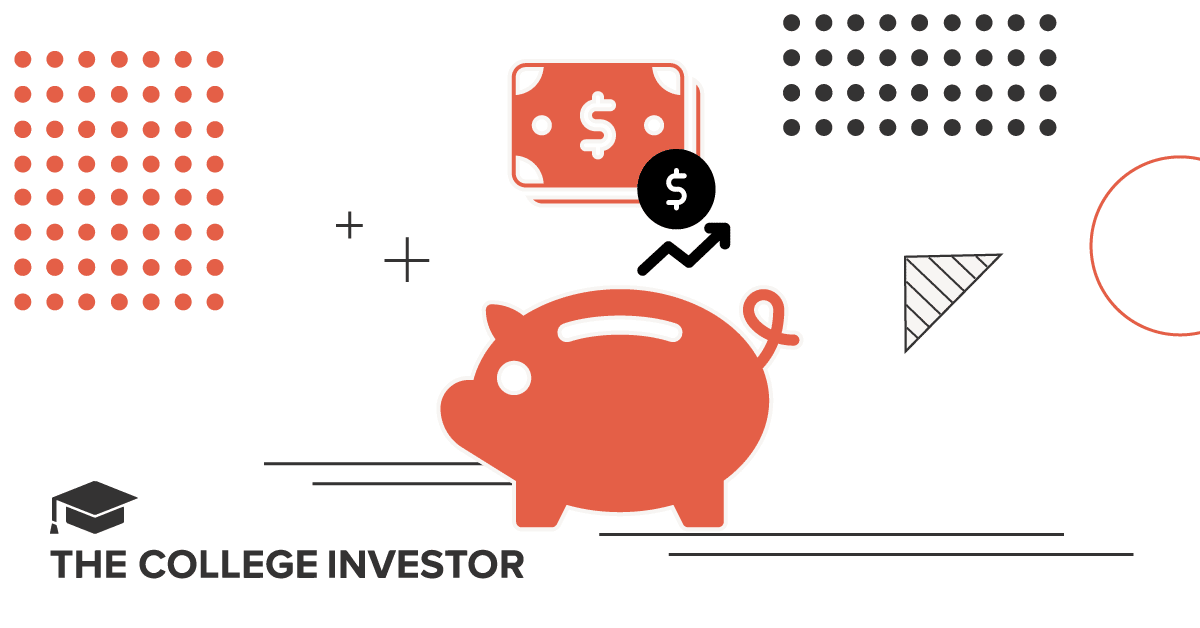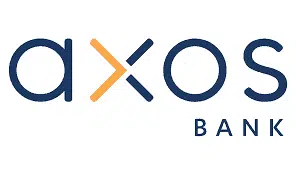10 Best Money Market Accounts Of October 2024


Source: The College Investor
If you’re looking to get a better interest rate on your savings, you need to consider opening a money market account.
Money market accounts operate extremely similar to savings accounts, and they are available at most banks. However, you’re typically going to find the best money market accounts at online banks.
A money market account can be a great place to park your savings, your emergency fund, your down payment for your house, or any other large sum of cash.
We break down our favorite money market accounts, as well as provide a list of the best money market accounts everyday in our table that updates daily. Given that interest rates change daily, make sure you check the table to get the best rates.
We evaluate money market accounts (MMA) based on their annual percentage rate (the interest you receive), the minimum balance requirements, and the terms and conditions of having the account.
Based on that, here are our recommendations of the best money market accounts.
Note: Annual percentage yields (APYs) shown are as of October 12, 2024. The College Investor’s team updates this information regularly, typically Monday-Friday. Rates may have changed since they were last updated and may vary by region for some products.
Brio Direct has been a popular online bank for years, as a sub-brand of Webster Bank, N.A. They are known for offering great high-yield savings accounts with extremely competitive rates.
Right now, you can earn 5.15% APY on your deposits. And yes, it’s FDIC insured!
This account does have a $5,000 minimum deposit to open.
Read our full Brio Direct review here.
Vio Bank has historically been known for having a great rate on their savings accounts. But they launched their Cornerstone Money Market Account, which has a fantastic interest rate with a low minimum deposit.
You can currently get 5.05%
APY with just a $100 minimum opening deposit. There are no monthly fees or other minimum balance requirements.
Vio Bank is FDIC insured as a division of MidFirst Bank.
Read our full Vio Bank review here.
Quontic Bank founded in 2009 to provide an online banking experience across the nation. Plus, it has a brick-and-mortar location in New York City.
You can currently get 5.00%
APY with just a $100 minimum opening deposit. There are no monthly fees or other minimum balance requirements.
Since this is a traditional bank, your money is FDIC insured.
Read our full Quontic Bank review here.
Brilliant Bank is a division of Equity Bank, which holds over $5 billion in assets and has locations in four states. Unlike its parent, Brilliant Bank is an online-only banking option.
They offer one of the top money market accounts right now. It does require a $1,000 minimum balance to open.
Right now, you can earn 4.85% APY on your entire balance! And yes, it’s FDIC insured!
Read our full Brilliant Bank review here.

American First CU Money Market Account is a solid option at a nationwide credit union! If you’re looking to a solid credit union to park your savings, check this one out.
You can currently get 4.65%
APY with just a $1 minimum opening deposit.
Read our full American First Credit Union review here.
Harborstone CU Money Market Account is a solid option at a Washington state-based credit union (but it’s open to depositors nationwide)! If you’re looking to a solid credit union to park your savings, check this one out.
You can currently get 4.55%
APY with just a $1 minimum opening deposit.
Blue Federal Credit Union is a credit union that’s been around since 1951, primarily serving those in the Air Force (hence the nod to “Blue”), but open to everyone through an online banking partnership with Raisin.
You can currently get 4.50%
APY with just a $1 minimum opening deposit. There are no monthly fees or other minimum balance requirements.
Since this is a credit union, Blue FCU is insured through the NCUA.
RBMAX by Republic Bank is a digital bank account offered by Republic Bank. Republic Bank was founded in 1982 and offers a full range of banking services, but RBMAX is their digital option.
You can currently get 4.15%
APY with just a $1 minimum opening deposit in partnership with Raisin.
Read our full RBMAX review here.
UNCLE Credit Union has been around since 1957, with physical branches located in the San Francisco Bay Area.
In partnership with Raisin, they’re offering this great money market account that just requires a $1 minimum deposit to open.
Right now, you can earn 3.99% APY on your entire balance! And yes, it’s FDIC insured!
Discover Bank has been around for a long time online, but not many people realize they have a bank beyond their credit cards.
They do pay a higher interest rate on balances over $100,000 – so they operate much like a traditional money market account. And best of all, they have no minimum deposit requirements and no monthly maintenance fees.
Right now, you can earn 3.95% APY on balances over $100,000 and 3.90% APY for balances under $100,000.
Read our full Discover Bank review here.
It’s important to note that there is very little difference between a savings account and a money market account.
Both accounts are FDIC insured, both have limits on how many checks and transfers you can do, and both are offered by banks, credit unions, and investment firms.
The big difference is that a money market account typically pays a little bit higher interest, but it also typically requires a slightly higher minimum balance.
That’s not always the case, though.
You can check out our list of the best high yield savings accounts here.
For example, one of our favorite picks, CIT Bank does only have a $100 minimum, which isn’t much.
They key to earning income with your money market account is to get the best rate possible. Too many people don’t shop around for the best rates on money market accounts – costing them money.
For example, the Federal Reserve reports that the average money market account rate is currently just 0.64% APY.
If you were depositing $10,000, that would only earn you $64 per year.
However, the best money market rates we have on our list above are earning 4.00% APY. That means, on that same $10,000 deposit, you’d earn $400 per year! That’s a $336 per year difference!
Money markets also have the advantage over certificates of deposit because they are liquid – you can get a higher interest rate on your money but you don’t have to worry about tying your money up for a long period of time.
While there are some CDs that earn higher rates than you’ll find in a money market account, those CDs typically have 5-10 year time frames.
Depending on where you open a money market account, it may not be FDIC insured. CDs are typically always FDIC insured. Learn more what it means to be FDIC insured here.
And if you sell before your expiration date, you typically face large penalties.
You can get a glimpse of the best CD rates here, but if you need liquid savings, you’re better off going with a savings account or money market account.
The College Investor has been actively tracking the best money market rates since 2018, with a daily updated list that monitors roughly 50 banks and credit unions that have a history of great rates. But we also are always scouting out other banks that may compete on this list.
Unlike other well-known companies who create “best money market rate lists”, we strive to put out rates in order highest to lowest so that you can know you’re actually getting the best rate. And if you don’t make the cut, too bad. You can find the full list of our bank review here.
Here’s our FAQ on money markets based on some of the common questions we get.
What’s the difference between a money market and savings account?
There is very little difference between a savings account and a money market account. Both accounts are FDIC insured, both have limits on how many checks and transfers you can do, and both are offered by banks, credit unions, and investment firms.
The big difference is that a money market account typically pays a little bit higher interest, but it also typically requires a slightly higher minimum balance.
What’s the difference between a money market and a CD?
A CD is a banking product that has a structured term, and you must keep your money in that CD for the term in order to get your interest payment. With a money market account, you can deposit and withdrawal your money at any time.
Are money market accounts FDIC insured?
Yes! Money market accounts are FDIC insured.
Are money market accounts offered only at banks?
Money market accounts are offered at banks, credit unions, and even some brokerage firms.
Do money market accounts charge fees?
Some may charge monthly maintenance fees, especially if you don’t keep the minimum balance required. Always make sure that you’re looking out for fees!
Can you lose your money in a money market account?
No, you cannot lose money in a money market account as long as you’re under the FDIC insurance deposit limits.
A money market account can be a great way to save your money.
You typically earn higher interest rates, but there are some restrictions above and beyond what you usually find for savings accounts.
Just like any account, make sure you’re opening the best money market account for your needs so you can reap the rewards.
The College Investor is dedicated to helping you make informed decisions around complex financial topics like finding the best money market account. We do this by providing unbiased reviews of the top banks and money market accounts for our readers, and then we aggregate those choices into this list.
We have picked money market accounts based on our opinions of how easy they are to use, their costs and fees, any interest rates and bonuses provided, and a variety of other factors. We believe that our list accurately reflects the best money market accounts in the marketplace for consumers.

Retirement is often pictured as a stress-free reward after decades of hard work. But many retirees discover that the reality...

Few people might choose to become a bus driver after working an office job. But for Tonya, a Minneapolis mom...

Federal research cuts and rising costs are squeezing graduate education. Asian and EU countries are stepping up recruitment of U.S....